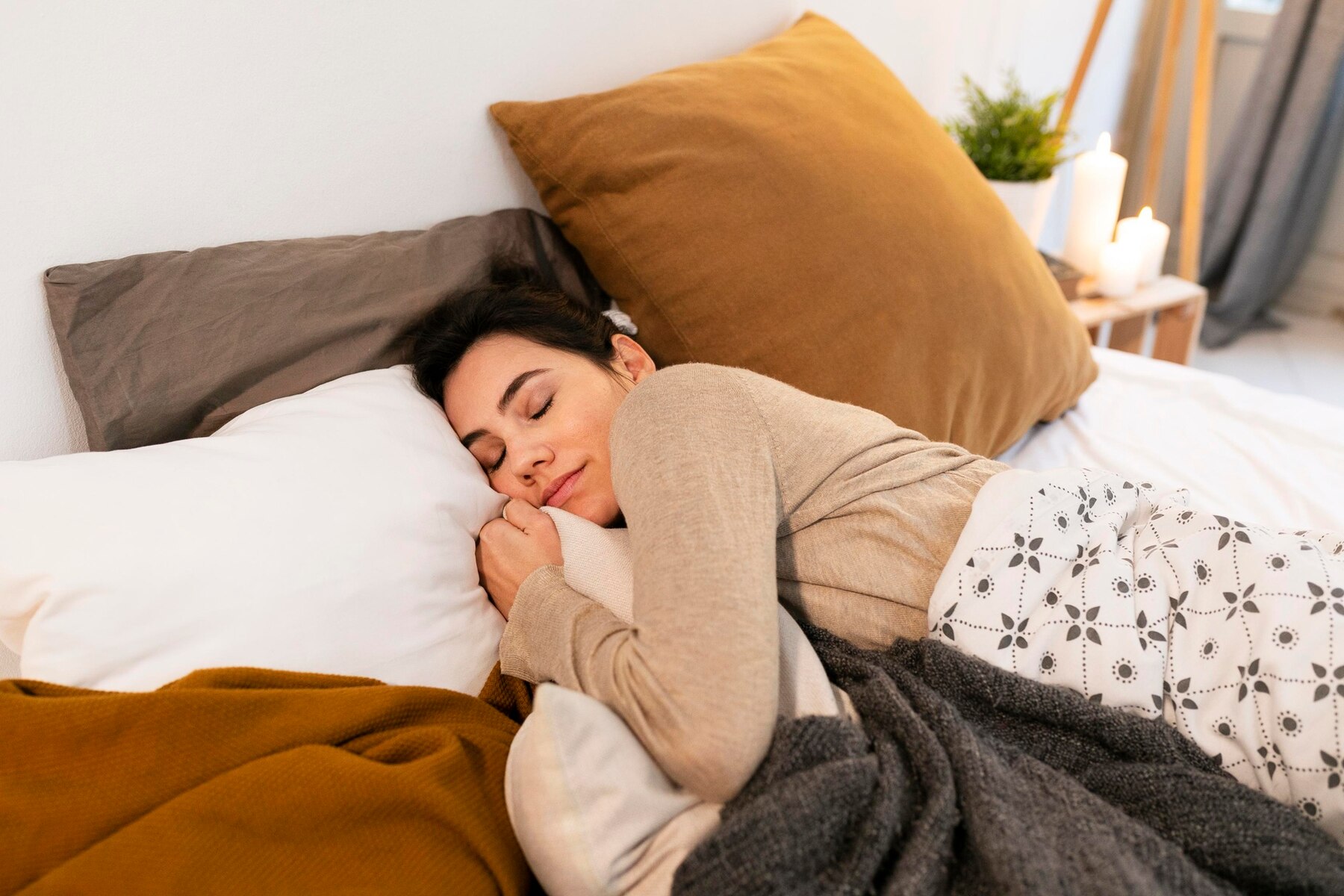
Herbal Remedies for Better Sleep: Natural Solutions for Insomnia
Struggling with sleepless nights? 🌙 You’re not alone. Insomnia can be frustrating, but you don’t have to rely on harsh medications to get the rest you deserve. Nature has provided us with time-tested herbal remedies, many of which are incorporated into Junk Juice formulas, that can help improve sleep quality and restore balance to your body. Let’s explore some of these amazing herbs and the classical Chinese formulas that have been trusted for centuries.
Unlike synthetic sleep aids, herbal remedies support your body’s natural ability to relax and achieve deep, restful sleep. Many of these herbs not only help with sleep but also address the root causes of insomnia, such as stress, overwork, and hormonal imbalances. They work gently yet effectively, making them a perfect addition to your nightly routine.
Top Herbs for Better Sleep
1. Suan Zao Ren (Ziziphus Seed)
- How It Helps: Known as one of the most revered sleep-supporting herbs in Traditional Chinese Medicine (TCM), Suan Zao Ren nourishes the heart and liver, calms the mind, and alleviates insomnia caused by stress or anxiety. It’s particularly effective for people who wake up frequently during the night or experience restless sleep.
- How to Use: Suan Zao Ren is a key ingredient in many TCM formulas, including Suan Zao Ren Tang. It’s often taken as a tea or in powdered form.
2. Ashwagandha
- How It Helps: An adaptogen, Ashwagandha helps the body manage stress, which can often interfere with sleep. It has calming properties that regulate cortisol (the stress hormone) and promote a relaxed state of mind.
- How to Use: Ashwagandha is included in some Junk Juice formulas, making it easy to incorporate into your routine. You can also take it as a powder or capsule.
3. Herbs in Classical Chinese Formulas
Traditional Chinese Medicine combines herbs into synergistic formulas to address not just symptoms but the underlying imbalances causing insomnia. Two key formulas stand out:
Suan Zao Ren Tang
- Purpose: This formula is designed to nourish the heart and liver, calm the mind, and support restful sleep. It’s particularly effective for those dealing with insomnia due to stress, irritability, or overwork.
- Key Ingredients: Suan Zao Ren (Ziziphus Seed), Chuan Xiong (Sichuan Lovage Root), Fu Ling (Poria), Zhi Mu (Anemarrhena Rhizome), and Gan Cao (Licorice Root).
- How It Helps: This formula addresses restlessness, difficulty falling asleep, and waking up during the night.
Gui Pi Tang
- Purpose: Known as “Restore the Spleen Decoction,” this formula is ideal for those whose insomnia is caused by overthinking, worry, or fatigue. It works by strengthening the spleen and nourishing the heart, two key organs in TCM that influence sleep.
- Key Ingredients: Ren Shen (Ginseng), Bai Zhu (Atractylodes), Dang Gui (Angelica Root), Suan Zao Ren, and Long Yan Rou (Longan Fruit).
- How It Helps: Gui Pi Tang improves both mental and physical energy while calming the mind for deep, uninterrupted sleep.
4. Ashwagandha
- How It Helps: Known as an adaptogen, ashwagandha helps your body manage stress and anxiety, which are common culprits of insomnia. It can also regulate cortisol levels, a stress hormone that can interfere with sleep.
- How to Use: Add ashwagandha powder to warm milk or take it in capsule form.
Some Western Herbs for Relaxing Teas
While Chinese formulas are often more powerful and holistic, these Western herbs can serve as a gentle option for promoting relaxation, especially in tea form:
Valerian Root
- How It Helps: Known as “nature’s tranquilizer,” valerian root has a calming effect on the nervous system, reducing anxiety and helping you fall asleep faster. It may also improve sleep quality by increasing the production of gamma-aminobutyric acid (GABA), a neurotransmitter that promotes relaxation.
- How to Use: Try valerian root tea or capsules about 30 minutes before bedtime.
Chamomile
- How It Helps: Chamomile contains apigenin, an antioxidant that binds to receptors in your brain to promote relaxation and help you drift off.
- How to Use: Brew a soothing cup of chamomile tea an hour before bedtime.
Lavender
- How It Helps: Lavender’s calming aroma lowers heart rate and blood pressure, making it a great aid for anxiety-related sleep troubles.
- How to Use: Add a few drops of lavender essential oil to a diffuser or sip lavender tea.
Lemon Balm
- How It Helps: Lemon balm is a calming herb that reduces restlessness and anxiety, paving the way for peaceful sleep.
- How to Use: Enjoy it in a tea or blend it with chamomile for a double dose of relaxation.
Junk Juice formulas incorporate key herbs like Ashwagandha and ingredients inspired by classical Chinese formulas such as Suan Zao Ren Tang and Gui Pi Tang. These blends are designed to improve sleep while addressing root causes like stress and fatigue.
Better sleep is within reach! 🌙 By incorporating herbs like Suan Zao Ren and exploring formulas such as Suan Zao Ren Tang and Gui Pi Tang, you can support your body’s natural ability to relax and recharge. And if you prefer a gentle, Western approach, herbs like Chamomile, Lavender, and Valerian Root make excellent relaxing teas.

